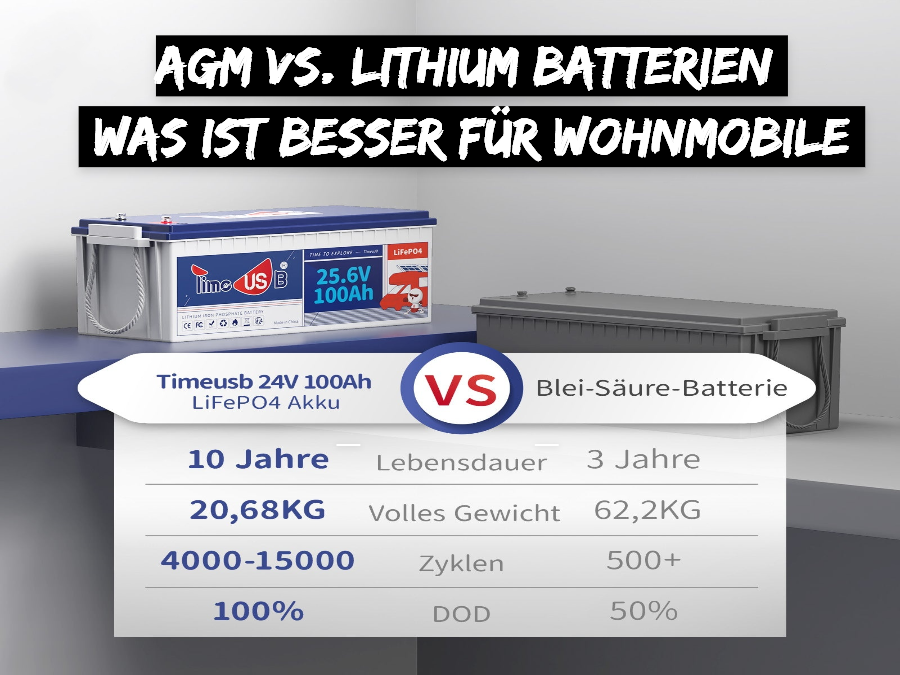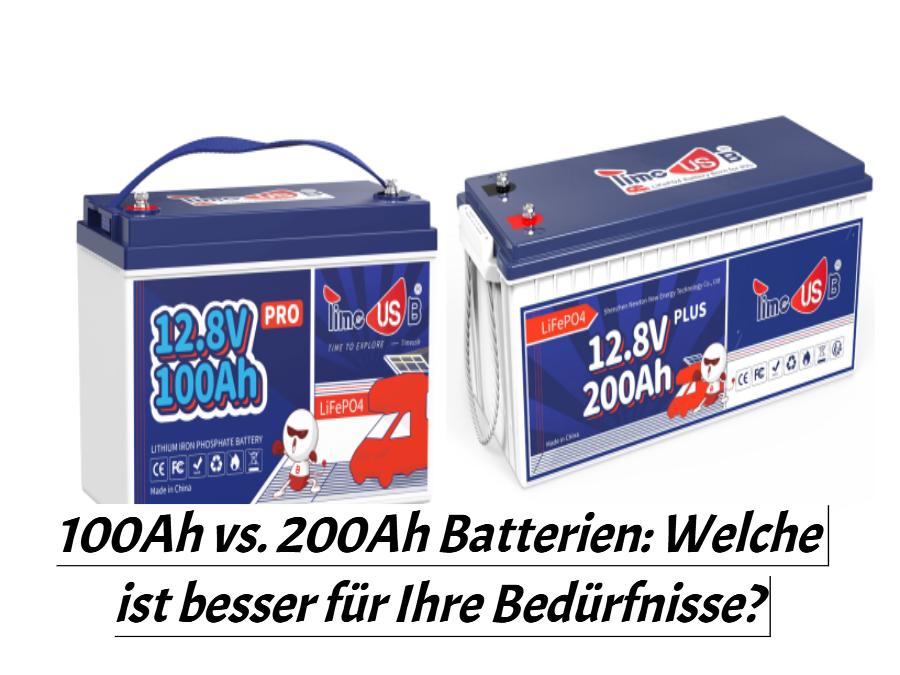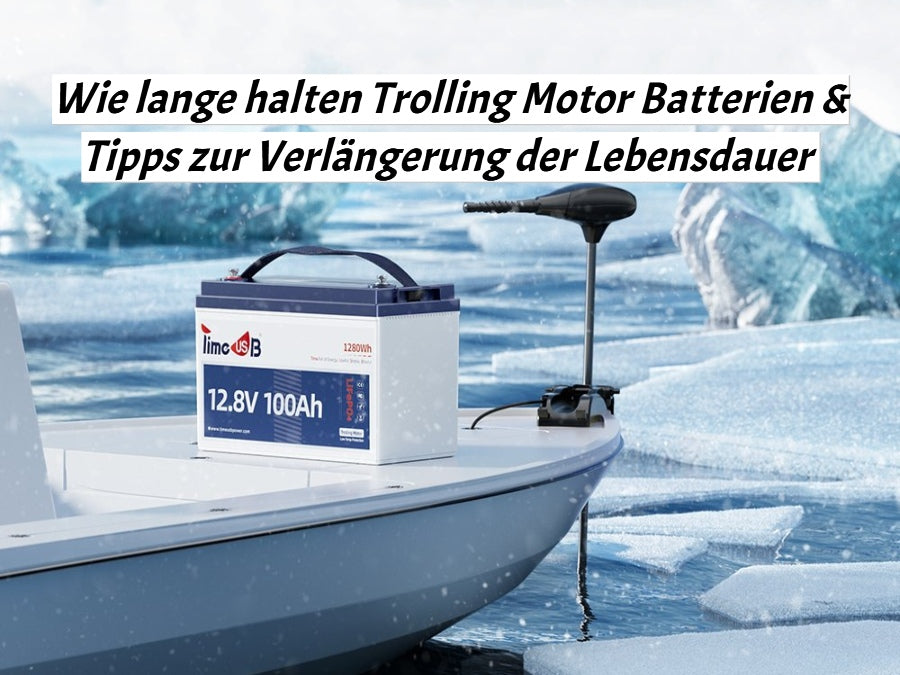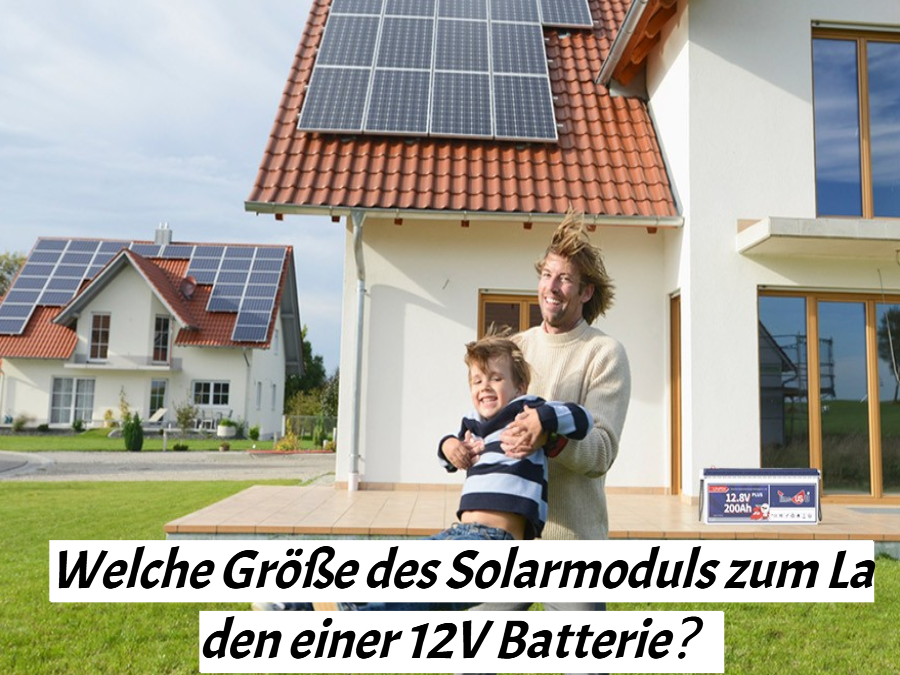AGM Vs. Lithium Batteries: Which is Better for RVs

In today's world where portable power is essential for a variety of applications, the choice of battery technology can have a significant impact on performance, longevity and overall cost. Two popular options that are often compared are AGM (Absorbent Glass Mat) batteries and lithium batteries.
Both have their unique features and uses, so it is important to know the differences in order to make an informed decision.
What is an AGM battery?
AGM stands for Absorbent Glass Mat and refers to a type of lead-acid battery. AGM batteries are a modern and advanced version of the traditional lead-acid battery. In an AGM battery, the electrolyte (sulfuric acid) is absorbed in a glass fiber mat, which makes the battery leak-proof and maintenance-free.
These batteries are commonly used in applications where maintenance-free and reliable power storage is required, such as backup power systems, renewable energy storage, marine and recreational vehicles, and certain automotive applications. AGM batteries are known for their ability to deliver high currents when needed and are often used in situations where a reliable power source is critical.
What is a lithium battery?
A lithium battery is a type of rechargeable battery that uses lithium as the active material. These batteries are used in numerous applications due to their high energy density, relatively low self-discharge, and ability to be recharged hundreds to thousands of times. Lithium batteries come in several different types, including lithium ion (Li ion), lithium polymer (LiPo), lithium iron phosphate (LiFePO4), and others.
Lithium ion batteries are commonly found in consumer electronics such as smartphones, laptops and tablets, as well as in electric vehicles, power tools and energy storage systems. They have become popular due to their low weight and high energy density, making them well suited for portable electronic devices and electric vehicles.
Lithium batteries are known for their ability to deliver high power and energy density, making them a popular choice for many modern applications. However, it is important to know that lithium batteries require careful handling and charging to ensure safety and longevity.
The comprehensive comparison of AGM and lithium batteries
To understand the differences in the performance of the two batteries, we will evaluate them on critical parameters. This evaluation will help you determine which battery is superior on each parameter and thus make an informed decision.
Depth of discharge (DoD):
- AGM: typically offers a depth of discharge of around 50%. Any deeper discharge will damage the battery.
- Lithium: Offers a higher depth of discharge, over 80% and even 100%, without damaging the battery. This means that a lithium battery with the same capacity provides twice as much energy compared to an AGM battery.
Life:
- AGM: The lifespan of AGM batteries is 300-500 life cycles and can be between 3 and 5 years.
- Lithium: Lithium batteries often have a longer lifespan, for example, Timeusb lithium batteries have a lifespan of 4000-15000, which is between 10 and 15 years.
Size and weight:
- AGM: AGM batteries are generally heavier than lithium batteries. A 12V 100Ah AGM battery weighs about 28-31kg.
- Lithium: Lithium batteries are known for their compact size and lighter weight. A Timeusb 12V 100Ah Mini Group24 lithium battery weighs only 9.5kg.

Energy density:
- AGM: An AGM battery from Mini Group24 has an energy density of about 15.94 Wh/kg.
- Lithium: A lithium battery from Mini Group24 offers a higher energy density of 134.36 Wh/kg.
Charging time and efficiency:
- AGM: AGM batteries generally have longer charging times and lower charging efficiency than lithium batteries. It takes about 8 hours for the battery to be fully charged.
- Lithium: Lithium batteries can be charged faster and with higher efficiency compared to AGM batteries. Most lithium batteries can be charged at 0.2C. For example, to charge a 12V 100Ah battery with, the recommended charging current is 20A and it would take 5-6 hours to fully charge the battery.
Maintenance:
- AGM: AGM batteries typically require minimal maintenance but may need to be balanced occasionally and should be kept fully charged when not in use.
- Lithium: Lithium batteries require minimal maintenance and do not need to be regularly balanced.
Environmentally friendly:
Both AGM and lithium batteries are recyclable and offer environmentally friendly options, but lithium batteries have a slight advantage due to their higher energy density and longer lifespan, meaning fewer batteries need to be recycled over time.
Security:
- AGM: AGM batteries are generally considered safe, but can release hydrogen gas if overcharged or improperly maintained.
- Lithium: Lithium ion batteries do not generate gas build-up and do not contain toxic liquids, so they can be used without additional safety precautions. In addition, lithium batteries are equipped with a BMS (Battery Management System) that provides protection.

Bluetooth technology
Another significant advantage of lithium batteries is their technology. In contrast to AGM batteries, lithium batteries such as the Timeusb 12V 100Ah H190 Smart Battery and 12V 100Ah 140Ah Smart Battery equipped with Bluetooth technology. Thanks to this feature, you can monitor the status of your battery at any time and ensure smooth operation before you set off on an RV adventure or UTV excursion.

The Bluetooth connection allows you to easily check the remaining charge level, voltage, temperature and much more, giving you direct access to important information. With lithium batteries and Bluetooth technology, you can say goodbye to guesswork and uncertainty and rest easy knowing you have full control over your energy needs. By accessing our Timeusb app on your smartphone, you have effortless access to all the information about your battery with just a few taps via Bluetooth.
Initial costs
Cost is a key factor when choosing between two types of batteries. Two cost factors to consider are the initial cost and the cost per kWh.
Lithium ion batteries involve a higher initial investment. Despite their superior performance over AGM batteries in terms of other parameters, the initial costs are considerably higher.
AGM batteries prove to be the more cost-effective option in terms of initial investment. However, when evaluating lifetime costs, lithium ion batteries prove to be the better choice due to their significantly longer lifespan.

Comparison of the applications of AGM and lithium batteries
After evaluating the performance of AGM and lithium batteries based on various parameters, it is important to consider how well they are suited for specific applications.
Batteries are not universal, and certain models may excel in certain scenarios. Let's look at the specific applications that AGM and lithium batteries are ideal for:
leisure batteries
LFP batteries are the ideal choice for leisure batteries in motorhomes or caravans. In the market for motorhome batteries, users are looking for a product that offers a long service life, high safety and low maintenance. Lithium leisure batteries, especially lithium iron phosphate batteries, meet these criteria excellently. When using lithium batteries in a motorhome, special battery chargers preferable to the built-in chargers.
marine batteries
Traditional liquid or gel batteries are not well suited for marine use due to the constant movement that affects the level of the battery surface. However, since most lithium batteries do not contain liquids, they are well suited for marine use. In addition, high-quality marine lithium batteries have an improved BMS designed for marine use that is resistant to moisture, dust, water and salt spray to ensure reliability in wet environments.
freezing conditions
Operating batteries in freezing conditions is challenging as charging the batteries at low temperatures can be problematic. This is one area where AGM batteries are superior to lithium batteries.
However, high-quality lithium batteries heat themselves, so that they are comparable to AGM batteries even at sub-zero temperatures.
storage of solar energy
Due to their high energy density, depth of discharge and extended warranty, LiFePO4 batteries are the optimal choice for solar energy storage. While the lower initial cost of a single AGM battery may be worth considering, when evaluating lifetime costs, a single lithium battery can achieve the performance of 16 AGM batteries. Consequently, LFP batteries are the better choice for solar storage applications.
UPS battery
Similar to the caravan battery market, LFP batteries are preferred in the uninterruptible power supply market. They offer greater safety, are maintenance free and have a higher capacity than comparable AGM batteries, making them a more affordable long-term option.
The ultimate decision
Both lithium and AGM batteries have their advantages and disadvantages. If you are looking for a reliable, efficient and lightweight maintenance-free solution, the decision is obvious. Lithium batteries are the first choice for your application.Their improved performance, longer lifespan and integrated Bluetooth technology offer significant relief and convenience. In addition, they can save you valuable time and money.




